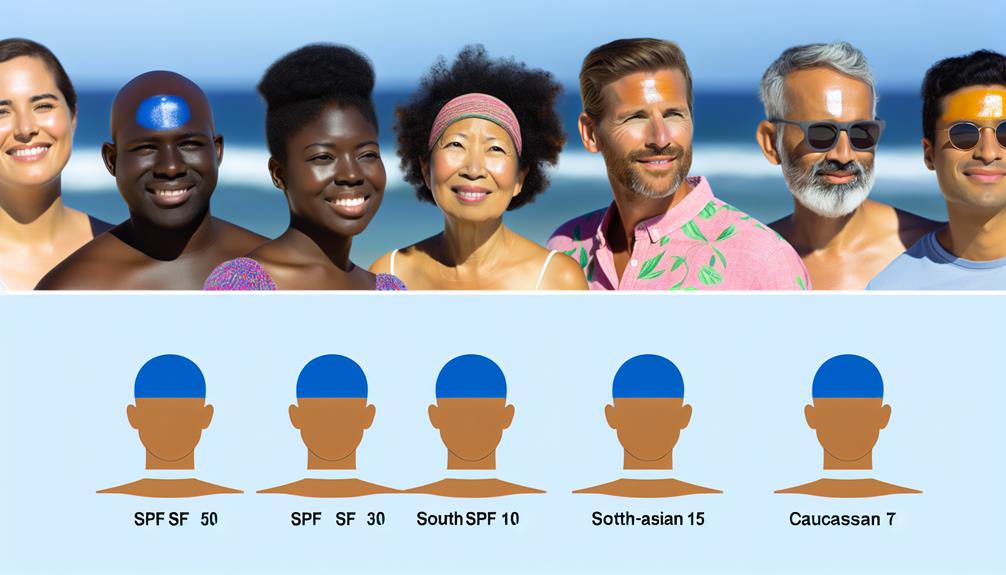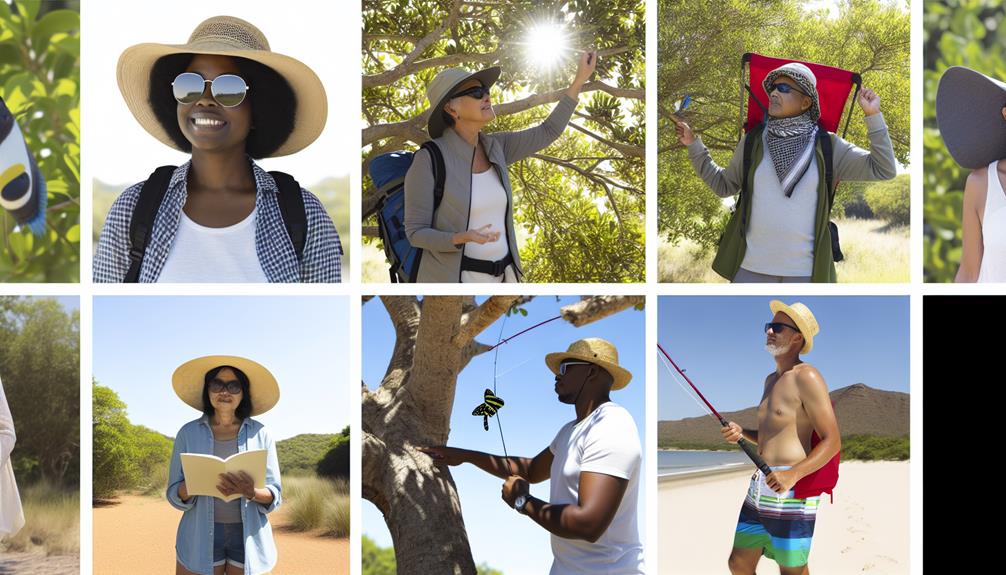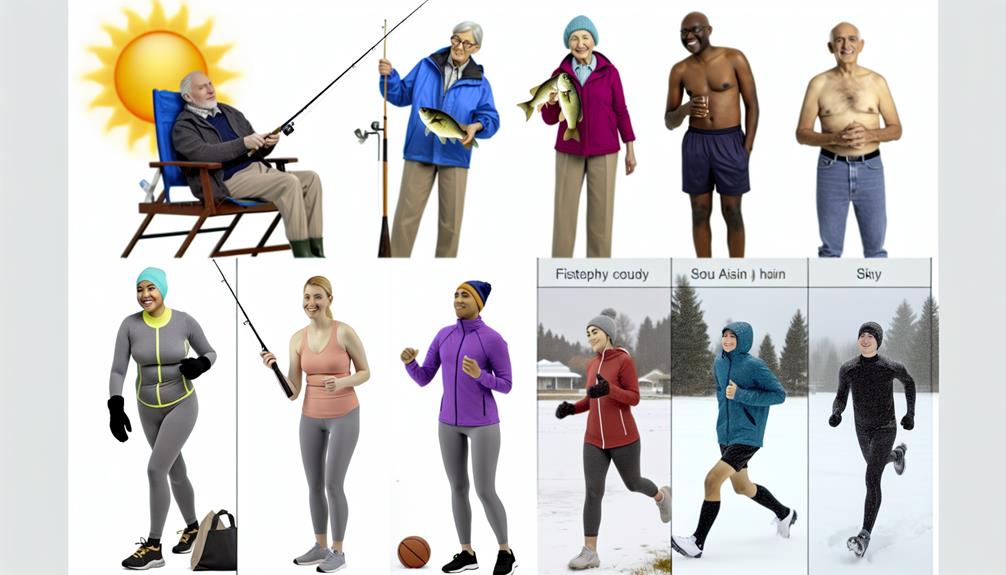As we prepare for the summer season, it’s essential to arm ourselves with the knowledge of what SPF do I need for skin protection. Did you know that an estimated 90% of skin aging is caused by sun exposure? That’s right, those wrinkles and age spots can be significantly reduced by simply choosing the right SPF.
But with so many options available, it can be overwhelming to determine the best level of protection for our skin. In this article, we will uncover the intricacies of SPF, explore the different types of UV rays, discuss specific SPF requirements for different skin tones, provide tips for choosing the right SPF products, and share additional sunscreen tips to keep your skin safe all summer long.
So, let’s embark on this journey together and discover the key to maintaining healthy and radiant skin under the sun’s gaze.
Importance of SPF Protection

Using SPF protection is crucial for safeguarding our skin from the harmful effects of the sun’s UV rays. Upgrading to a higher SPF can prevent skin aging and skin cancer.
Broad spectrum SPF products provide protection against UVA and UVB rays, which cause premature aging, skin cancer, and sunburn. It’s important to note that the amount of UV rays in the environment has increased over the past 30 years. This means that even those with darker skin tones are susceptible to sun damage and need at least SPF 30.
Choosing the right SPF product is also key. SPF 30 or higher is recommended for all skin types, and different formulas cater to specific needs, such as hydrating ingredients for dry skin and non-comedogenic options for oily skin. To protect our skin and the environment, it’s best to use reef-safe sunscreen with zinc oxide.
Remember to apply sunscreen to all exposed skin, reapply every two hours, and opt for water-resistant options during activities involving sweat or water.
Understanding UV Rays
UV rays, consisting of UVA and UVB rays, pose significant risks to our skin, including premature aging, sunburn, and an increased likelihood of developing skin cancer.
UVA rays penetrate deep into the skin, causing damage that leads to wrinkles, age spots, and an increased risk of skin cancer.
On the other hand, UVB rays primarily affect the surface of the skin, causing sunburn and contributing to skin cancer.
It’s important to note that the amount of UV rays in our environment has increased over the past few decades. Therefore, relying on a lower SPF, such as SPF 15, isn’t sufficient to protect against these harmful rays.
To shield our skin from UV damage, it’s recommended to use broad spectrum sunscreen with an SPF of 30 or higher.
What SPF do I Need for Different Skin Tones

Different skin tones have varying requirements when it comes to SPF protection. While people with lighter skin are at a higher risk of sun damage, it’s important to note that even those with darker skin tones need adequate protection.
Contrary to popular belief, darker skin isn’t immune to the harmful effects of the sun. Darker skin tones can still experience sunburn, wrinkles, and an increased risk of skin cancer. Therefore, it’s crucial for individuals with all skin types to use SPF 30 or higher.
Regardless of your skin tone, protecting your skin from the sun’s harmful UV rays is essential for maintaining healthy and radiant skin. So, liberate yourself from misconceptions and embrace the importance of SPF for all skin tones.
Choosing the Right SPF Products
Now that we understand the importance of SPF for all skin tones, let’s explore how to choose the right SPF products for optimal sun protection. What SPF do I Need? Here’s a guide.
Here are some helpful tips to guide you in selecting the perfect SPF product:
- Opt for SPF 30 or higher: Higher SPF levels provide better protection against harmful UV rays.
- Consider your skin type: If you have dry skin, look for products with hydrating ingredients like hyaluronic acid. For oily skin, choose non-comedogenic sunscreen to avoid clogging pores. Sensitive skin may benefit from physical sunscreen containing titanium dioxide.
- Look for broad spectrum protection: Ensure that the sunscreen you choose protects against both UVA and UVB rays.
- Don’t forget about the environment: Choose reef safe sunscreens that contain zinc oxide to protect our oceans and marine life.
Additional Sunscreen Tips

To ensure maximum sun protection, it is important to follow these additional tips when using sunscreen. Check out the table below for a quick reference:
| Additional Sunscreen Tips |
|---|
| Use reef safe sunscreen with zinc oxide to protect the environment. |
| Apply sunscreen to all exposed skin, including the face. |
| Spray sunscreen can help reach difficult areas. |
| Water resistant sunscreen is important for activities involving sweat or water. |
| Reapply sunscreen every two hours, even if it is water resistant. |
Using reef safe sunscreen with zinc oxide is not only beneficial for your skin but also for the environment. Ensure that you apply sunscreen to all exposed areas, including your face, as these areas are more prone to sun damage. Spray sunscreen can assist in reaching those hard-to-reach areas. If you are engaging in activities that involve sweating or water, opt for water-resistant sunscreen to maintain protection. Lastly, remember to reapply sunscreen every two hours, even if it claims to be water resistant. By following these additional tips, you can enjoy your time in the sun while keeping your skin protected.
Importance of Upgrading SPF
Upgrading your SPF is a crucial step in protecting your skin from the harmful effects of the sun. Here’s why you should consider upgrading your SPF:
- Better Protection: Higher SPF, such as SPF 30 or SPF 50, provides a stronger shield against harmful UV rays. Upgrading your SPF ensures that your skin receives maximum protection.
- Prevents Skin Aging: Upgrading to a higher SPF can help prevent premature aging caused by UVA rays. By blocking these rays, you can minimize the appearance of wrinkles, fine lines, and age spots.
- Reduces Cancer Risk: Upgrading your SPF also lowers the risk of developing skin cancer. Higher SPF offers increased protection against both UVA and UVB rays, which are known to contribute to skin cancer.
- Suitable for All Skin Tones: Whether you have lighter or darker skin, upgrading your SPF is important. Even those with darker skin tones are susceptible to skin cancer, sunburn, and wrinkles. Adequate SPF protection is necessary for everyone.
The Dangers of UVA Rays

UVA rays, one of the components of UV radiation, pose significant dangers to our skin. Unlike UVB rays that primarily cause sunburns, UVA rays penetrate deep into the skin, causing long-term damage. These rays are responsible for premature aging, such as wrinkles, fine lines, and age spots. Moreover, UVA rays increase the risk of skin cancer, making it crucial to protect ourselves against their harmful effects.
To better understand the dangers of UVA rays, let’s take a look at the following table:
| Dangers of UVA Rays | |||
|---|---|---|---|
| Premature Aging | Wrinkles | Fine Lines | Age Spots |
| Increased Risk of | |||
| Skin Cancer | Melanoma | Basal Cell Carcinoma | Squamous Cell |
| Carcinoma |
As you can see, UVA rays not only affect the appearance of our skin but also pose a serious threat to our overall health. To protect ourselves, it is essential to choose broad-spectrum sunscreen that effectively blocks both UVA and UVB rays. Remember, liberation includes taking care of our skin and prioritizing our health.
The Risks of UVB Rays
Now let’s explore the risks of UVB rays, the other component of UV radiation, and understand why protecting our skin from their harmful effects is crucial.
- UVB rays are responsible for causing sunburn, which can lead to painful redness, peeling, and blistering of the skin.
- Prolonged exposure to UVB rays increases the risk of developing skin cancer, including the deadliest form, melanoma.
- UVB rays can also weaken the immune system, making it harder for your body to fight off infections and diseases.
- Overexposure to UVB rays can accelerate the aging process, causing wrinkles, fine lines, and age spots to appear sooner.
It’s important to shield our skin from these risks by using broad spectrum sunscreen with a high SPF, such as SPF 30 or higher. Don’t forget to reapply regularly and seek shade during peak sun hours to further minimize exposure to UVB rays.
Factors to Consider When Selecting What SPF do I Need

When selecting SPF products, it is important to consider various factors to ensure effective protection for your skin. Here are some key factors to keep in mind:
| Factor | Description |
|---|---|
| SPF Level | Opt for a minimum SPF 30 or higher to shield your skin from harmful UV rays. Higher SPF offers better protection. |
| Skin Type | Consider your skin type when choosing SPF products. Dry skin benefits from hydrating ingredients like hyaluronic acid, while oily skin can benefit from non-comedogenic sunscreen to avoid clogged pores. Sensitive skin may require physical sunscreen with titanium dioxide. |
| Broad Spectrum | Ensure that the SPF product provides broad spectrum protection against both UVA and UVB rays. This will protect against premature aging, skin cancer, and sunburn. |
Best Practices for Sunscreen Application
After considering the factors for selecting SPF products, it’s important to know the best practices for applying sunscreen to ensure optimal protection for your skin. Here are some tips to help you get the most out of your sunscreen:
- Apply sunscreen to all exposed skin, including your face, ears, and neck. Don’t forget those easily overlooked areas like the back of your hands and tops of your feet.
- Use a spray sunscreen to reach those hard-to-reach places, like your back. Just make sure to rub it in for even coverage.
- Opt for water-resistant sunscreen if you’re planning on swimming or sweating. This will help maintain protection even when exposed to moisture.
- Remember to reapply sunscreen every two hours, even if it claims to be water resistant. This ensures continuous coverage and protection throughout the day.
Frequently Asked Questions for What SPF do I Need
Can I Use a Lower SPF if I Only Spend a Short Amount of Time in the Sun?
We recommend using a higher SPF, even if you only spend a short amount of time in the sun. UV rays can still damage your skin, regardless of the duration of exposure.
A lower SPF may not provide adequate protection against UVA and UVB rays, increasing the risk of premature aging and skin cancer.
It’s important to prioritize the health of your skin by using an SPF 30 or higher sunscreen, regardless of sun exposure duration.
Is It Necessary to Wear Sunscreen on Cloudy Days?
It is necessary to wear sunscreen on cloudy days. Even though the sun may not be as intense, harmful UV rays can still penetrate through the clouds and damage our skin. Clouds only filter out a small percentage of UV rays, so our skin is still at risk of sunburn, premature aging, and skin cancer.
To answer What SPF do I Need, for adequate protection, it’s important to wear sunscreen with a high SPF, such as SPF 30 or higher, regardless of the weather conditions.
Can I Use a Moisturizer With SPF Instead of a Dedicated Sunscreen?
Using a moisturizer with SPF instead of a dedicated sunscreen may not provide sufficient protection. While moisturizers with SPF can offer some sun protection, they often have lower SPF levels and may not provide broad spectrum coverage.
It’s best to use a dedicated sunscreen with SPF 30 or higher to ensure adequate protection against UVA and UVB rays. Don’t forget to reapply every two hours, even if the sunscreen is water resistant.
What SPF do I Need With Makeup for Sun Protection?
We can’t solely rely on makeup with SPF for adequate sun protection. While it’s beneficial to have some level of sun protection in our makeup, it’s not enough to shield our skin from harmful UV rays.
Makeup with SPF is usually not applied in sufficient quantities to provide the desired level of protection. It’s crucial to use a dedicated sunscreen with at least SPF 30 or higher to effectively protect our skin from sun damage.
Is It Safe to Use Expired Sunscreen?
It is important to understand the safety of using expired sunscreen.
While expired sunscreen may still provide some protection, it isn’t guaranteed to be as effective. The active ingredients in sunscreen can degrade over time, reducing their ability to shield your skin from harmful UV rays.
To ensure proper protection, it’s best to use sunscreen that’s within its expiration date. Remember to always check the expiration date on your sunscreen bottle before applying it to your skin.
Conclusion
In conclusion, protecting our skin from harmful UV rays is crucial during the summer season. Understanding the importance of SPF and choosing the right level of protection is essential for all skin types.
By using broad-spectrum sunscreen and following additional sunscreen tips, we can effectively shield our skin from UVA and UVB rays. Remember to reapply regularly and choose SPF products that suit your specific skin type.
With the right knowledge and precautions, we can keep our skin safe and healthy all summer long.





